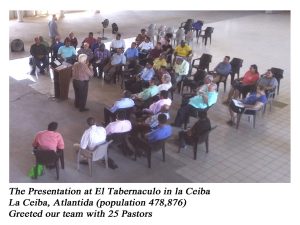The following article was written by Steve Strang in 1975 for the first edition of Charisma Magazine. It is a brief history of the American Great Awakening in the 1700″s and a summary of what some say was the most powerful message ever preached in America. (We will let you decide that for yourself) Our great country is in a great time of turmoil and struggle but some of us still trust our Almighty God can save souls, change lives, give hope and mend broken hearts. Read this tremendous article and be inspired and just maybe share it with a friend who needs to know the truth.
By Steve Strang-Fifty years before a Lexington minuteman fired the shot heard around the world, another revolution began that shook the American colonies.
It was a spiritual revolution which historians call the Great Awakening. It was marked by waves of religious enthusiasm as preachers like George Whitefield traveled the seacoast from Maine to Georgia, preaching that sinners should repent.
American history’s most famous sermon—”Sinners in the Hands of an Angry God”—was preached in 1741 by Jonathon Edwards at the height of the great revival.
History records that sinners repented by the hundreds. Taverns closed as whole towns repented. Often people were so moved by conviction they trembled and shrieked and fell to the ground moaning and begging God to forgive their sins.
Edwards writes about a young woman in his congregation who was so convicted of sin she declared that “it was pleasant to think of lying in the dust all the days of her life, mourning for sin.”
The preaching about turning from sin and the importance of salvation over the rituals of the state church in places like Massachusetts, was important in the light of history.
The result of the revival, which continued strong for 15 years and the effect of which continued for many more years, was to establish early in American life the importance of a man serving God as his conscience, not the state, dictated.
Thousands of newly converted people were forced by their churches to leave because their new convictions about the importance of salvation often threatened the existing ecclesiastical power structure. This fostered the growth of new churches like the Methodists and toppled any hope of one denomination becoming dominant and becoming the American state church.
Some historians consider the Great Awakening a major turning point in American history, yet it is frequently overlooked. While the national remembers its 200th anniversary this year and next, the Christian community can be inspired by remembering one of the greatest revivals on this continent.
The Great Awakening, besides being a major spiritual renewal, did much to foster a feeling of independence in the colonies and helped wipe out the class structure brought to the New World from Europe.
It also fostered education and several major universities like Dartmouth, Princeton and Brown, had their genesis in the revival. In addition, it stimulated missionary work among the Indians and slaves.
Historian Monroe Stearns wrote: “The Great Awakening’s essential purpose was to fulfill the royal law of love—to cause men to serve not themselves but one another and to join in an effort to improve society. The vision it revealed of the social good led to a challenge of the rulers of colonial society in America and into the discussion and activity that produced the movement for independence.
The Great Awakening has been, however, relegated to relatively minor role by most historians who view it as only emotional hysteria that they say has characterized revivals throughout our history.
The truth is, however, that despite emotionalism that characterized some of the Great Awakening from 1720 to 1760, it was the first great move of God on this continent and was the first of many revivals that have come to America since then.
To understand the importance of the revival and its impact on America, it’s important to understand the religious and social structure of the day.
Many of the early immigrants to America came because of religious oppression in Europe.
The French Huguenots were the first Protestants to flee to America. In 1562, more than half a century before the Pilgrims arrived at Plymouth Rock, a small group of Huguenots arrived in Florida in present day Jacksonville, hoping to escape the massacres of Charles IX of France. But within months, their settlement was destroyed by an agent of Philip II of Spain. Not one Huguenot survived.
In 1620, the English Separatists among them soon headed for Rhode Island with Roger Williams looking for religious freedom the Puritans did not give them.
The Pilgrims were followed in 1656 by the early Quakers who, being unwelcomed in New England, settled in New Jersey, then in 17682 in Pennsylvania.
By the early 1700’s, group after group of other Protestants seeking freedom from European intolerance began to arrive.
Of course, not every new settler in the new world came for religious liberty. Many came for economic and political opportunities not available to them in Europe. But many of the immigrants did come to worship God as they saw fit.
This desire for religious liberty and their deep faith in God was all that strengthened many of these early colonists to brave the perils of the American wilderness.
But after a few decades the original closeness to God that drove the early settlers to seek religious freedom was replaced by the coldness and rituals of the churches the settlers established.
This is what Theodorus Frelinghuysen found in 1720 when he was sent by the Dutch Reformed Church in the Netherlands to minister to Dutch settlers in New Jersey.
Frelinghuysen was a member of the Pietists who believed the power of the Holy Spirit could only be felt because it worked on the heart, not the brain. They put no emphasis on complicated church doctrines, but on having a “change of heart,” and becoming one with God.
Frelinghuysen preached that in order to be a member of the church and take communion, one must be born again. He caused quite a stir among the young and the poor who readily responded to his message.
The established, more prosperous members at first resisted, then began to become converted. Within five years his congregations had so increased and so many people had become converted, other ministers began inviting Frelinghuysen to preach at their churches, hoping for similar results.
Frelinghuysen greatly inspired a Presbyterian minister, Gilbert Tennent, and worked with him, breaking down denominational walls.
While Tennent and Frelinghuysen were preaching in New Jersey, Jonathon Edwards was causing a stir in New England with his sermons.
When he became minister in 1729 of the church of Northhampton, Mass., he found a generation of New Englanders who had grown up in spiritual confusion and who didn’t know how to be saved.
In addition, the churches of that area were controlled by the wealthy merchant class—the same people who controlled the government and who oppressed the people.
The Puritan Church had for many years preached salvation, but as the merchants began to seize control, more liberal ministers began to say salvation was not necessary for church membership.
Edwards resisted this trend, and preached faith in Christ was necessary for salvation. He began to see results.
In 1734, after five years at the church, he reported “a concern about the great things of religion began…to prevail abundantly in the town, till old and young, and from the highest to the lowest…Scarcely a person has been exempt, and the Spirit of God went on his saving influences…in a truly wonderful and astonishing manner.”
Word of the revival spread up and down the Connecticut River valley and by May, 1735, 25 towns had experienced similar awakenings.
The revival subsided until 1739 when a 24-year-old minister from England named George Whitefield began to preach in the New York area.
Whitefield had come to America in 1738 to establish an orphanage in Georgia.
Whitefield was such a magnificent speaker that many people came to hear him merely because of his speaking and acting ability.
He frequently preached on streets or in open fields.
Benjamin Franklin, who heard him in Philadelphia, estimated that Whitefield’s voice was so powerful 30,000 people could hear him at once, because he repeated key sentences four times—once in each direction.
Whitefield was so eloquent at raising money for his orphanage, that Franklin wrote he left his purse home on purpose when he went to hear him. Still, he had in his pocket several pieces of copper, several silver dollars and five pieces of gold.
“As he proceeded,” Franklin wrote, “I began to soften and concluded to give him the copper. Another stroke of his oratory made me ashamed of that, and determined me to give him the silver; and he finished so admirably, that I emptied my pocket wholly into the collection dish, gold and all.”
The Great Awakening was not without its problems, however.
Often when people felt convicted of their sins, they thrashed about on the floor, moaning and shrieking. Emotionalism was so widespread that it turned off many who had not been touched in their hearts with the Gospel message.
Rev. Jonathan Parsons of Lyme, Conn. wrote that some converts acted as if “the joints of their limbs were loosed and their knees smote one another…Several stout ones fell as though a cannon had been discharged and a ball had made its way through their hearts.”
One lady, Sarah Sparhawk, of Marlboro, Mass., was “like one deprived of her reason” and “was brought home (from church) by some young men. She often lay there crying out, screaming and striving much in her fits for an hour or two.”
Trances, visions, and something called “the jerks” became commonplace.
The opposers of the revival were led by Charles Chauncy, pastor of the old First Church in Boston. He objected to the “preaching of terror” and the “bodily effects.” He attacked the whole movement as a dangerous explosion of emotion.
Edwards saw the extremes of the revival, but still considered the Awakening a “surprising work of God,” and stedfastly defended it. He said the excesses of emotion were “enthusiastic delusions” or “impressions upon the imagination.”
He thought, however, that to oppose the revival as some ministers did, was evil. The “prevailing prejudice against religious affections at this day, in this land” was caused by none other than Satan, Edwards wrote.
He warned the critics of the revival that “for persons to despise and cry down all religious affections, is the way to shut all religion out of their own hearts, and to make thorough work in ruining their own souls.”
There were other great preachers in the revival. John Wesley, father of Methodism, was one. He preached in Georgia a number of years, and had an impact on the life of George Whitefield. But mostly Wesley’s influence was limited to England where a similar revival was taking place.
Samuel Davies, a Presbyterian, spread the revival to Virginia in 1748 where he had to get a license from the governor to preach.
The Anglican clergy opposed this non-Anglican in Virginia and took him to court saying he had no right to preach. The issue went to London in 1753 for a verdict and Davies won in 1755. It set a precedent for religious freedom in the colonies.
As the Great Awakening began to subside people like Davies continued to spread it until the 1750’s.
The Awakening had a long-run effect on education, social and moral structure of America for many years. But its main impact—and this should never be forgotten—was spiritual.
Men’s lives were changed when they encountered a personal faith in Jesus Christ. Despite the emotionalism that accompanied the movement, many new converts were made, and these converts had a different way of living.
Jonathon Parsons wrote of the new converts that “bitterness and wrath, and anger, and clamor, and evil-speaking seemed to be put away from them, with all malice…Rough and haughty minds became peaceful, gentle, and easy to be entreated… Their faith worked on love, and discovered itself in acts of piety towards God, charity and righteousness toward men and sobriety toward themselves.
That’s what true revival is all about.
Editor’s Note: The following are sidebars that appeared in the original edition of this article.
John Wesley
The founder of the Methodist Church, John Wesley, was a methodical man. While at Oxford University, he scheduled his intellectual activity by the clock-meditating perhaps from 11 a.m. to noon on the Calvinist doctrine of predestination and from noon to 1 p.m. on the doctrine of free grace. He and other students, including George Whitefield (below) worshiped together in what some students ridiculed by calling “Holy Clubs” or “Methodists.”
Early in his ministry, Wesley was sent to minister to the convicts sent to Georgia colony. He traveled throughout the colonies and England a total of 200,000 miles—by his own estimate—traveling by foot, by horseback and carriage to preach an estimated 40,000 sermons in his 87 years.
His brother, Charles, during his lifetime wrote about 6,500 hymns, many of which we sing today, like “Love Divine, All Love Excelling” and “Hark, the Herald Angels Sing.” When a man once said he wished he had a thousand tongues to sing the praises of Jesus, Charles wrote “O For a Thousand Tongues to Sing!”
Another time, when a bird fell onto his window while being chased by a hawk, Charles wrote the most famous of his songs, “Jesus, Lover of My Soul, Let Me to Thy Bosom Fly.”
George Whitefield
The Great Awakening’s most rousing speaker, George Whitefield, is said to have been able to stir crowds just with the way he said “Mesopotamia.” The great English actor, David Garrick said, “I would give a hundred guineas if I could say ‘Oh! Like Mr. Whitefield.”
In Boston, such a revival swept the town while Whitefield was there that the Rev. John Webb wrote that “the very face of the town seemed to be altered” and that the taverns were as empty as the churches were full, for “about a year and a half after Mr. Whitefield left us.”
In one sermon, Whitefield is said to have cried, “Father Abraham, whom have you in heaven? Any Episcopalians? No? Any Presbyterians? No? Have you any Independents or Seceders? No? Have you any Methodists? No, no, no? Whom have you there?”
“We don’t know those names here. All who are here are Christians.” Whitefield would quote the answer from heave. Then, he would add: “Oh, is this the case? Then God help us, God help us all, to forget party names, and to become Christians in deed and in truth.”
Jonathon Edwards
Historians record that Jonathon Edwards was a small, frail man who preached in a quiet monotone, without gestures. He was also one of the greatest intellectuals American society has produced.
Edwards pastored in Northampton, Mass., when the Great Awakening broke out. Like other preachers during this period, he began traveling to nearby churches. The reason – there were so few converted ministers that those who were saved were in great demand as the revival spread.
It was on the road that Edwards preached a sermon that historians say is the most famous in American history – “Sinners in the Hands of an Angry God.” It is said he preached it as a last-minute substitute for another preacher at Enfield, Conn., on July 8, 1741.
Historian Monroe Stearns credits Edward’s sermon with ending the superstitions of the Middle Ages and initiating the concept that man is responsible for his own happiness through coming to God.
The sermon had a great impact the day it was preached. The congregation shrieked and groaned and cried out “Oh, what shall I do to be saved.” It got so bad, Edwards stopped his sermon to ask the people to be more quiet.
The 76,000-word sermon is still studied by seminary and Bible college students. An excerpt follows:
“Sinners in the Hands of an Angry God”
Deuteronomy 32:35
-Their foot shall slide in due time.-
In this verse is threatened the vengeance of God on the wicked unbelieving Israelites, who were God’s visible people, and who lived under the means of grace; but who, notwithstanding all God’s wonderful works towards them, remained (as verse 28)voice of counsel, having no understanding in them. The expression I have chosen for my text, “Their foot shall slide in due time,” seems to imply the following things, relating to the punishment and destruction to which these wicked Israelites were exposed.
- That they were always exposed to destruction; as one that stands or walks in slippery places is always exposed to a fall. This is implied in the manner of their destruction coming upon them, being represented by their foot sliding.
- It implies, that they were always exposed to sudden unexpected destruction. As he that walks in slippery places is every moment liable to fall, he cannot foresee one moment whether he shall stand or fall the next; and when he does fall, he falls at once without warning.
- Another thing implied is, that they are liable to fall of themselves, without being thrown down by the hand of another; as he that stands or walks on slippery ground needs nothing but his own weight to throw him down.
- That the reason why they are not fallen already, and do not fall now, is only that God’s appointed time is not come. For it is said, that when that due time, or appointed time comes, their foot shall slide.
Application
The use of this awful subject may be for awakening unconverted persons in this congregation. This that you have heard is the case of every one of you that are out of Christ. That world of misery, that lake of burning brimstone, is extended abroad under you. There is the dreadful pit of the glowing flames of the wrath of God; there is hell’s wide gaping mouth open; and you have nothing to stand upon, nor anything to take hold of; there is nothing between you and hell but the air; it is only the power and mere pleasure of God that holds you up.
Your wickedness makes you as it were heavy as lead, and to tend downwards with great weight and pressure towards hell; and if God should let you go, you would immediately sink and swiftly descend and plunge into the bottomless gulf, and your healthy constitution, and your own care and prudence, and best contrivance, and all your righteousness, would have no more influence to uphold you and keep you out of hell, than a spider’s web would have to stop a falling rock.
Were it not for the sovereign pleasure of God, the earth would not bear you one moment, for you are a burden to it. The creation groans with you; the creature is made subject to the bondage of your corruption, not willingly.
The sun does not willingly yield her increase to satisfy your lusts, nor is it willing a stage for your wickedness to be acted upon. The air does not willingly serve you for breathe to maintain the flame of life in your vitals, while you spend your life in the service of God’s enemies.
The God that holds you over the pit of hell, much as one holds a spider, or some loathsome insect over the fire, abhors you, and is dreadfully provoked. This wrath towards you burns like fire. He looks upon you as worthy of nothing else, but to be cast into the fire. He is of purer eyes than to bear to have you in his sight. You are 10,000 times more abominable in his eyes, than the most hateful venomous serpent is in ours.
There is no other reason to be given why you have not gone to hell, since you have sat here in the house of God, provoking his pure eyes by your sinful, wicked manner of attending his solemn worship. Yea, there is nothing else that is to be given as a reason why you do not this very moment drop down into hell…but that God’s hand has held you up.
God seems now to be hastily gathering in his elect in all parts of the land; and probably the greater part of adult persons that ever shall be saved, will be brought in now in a little time, and that it will be as it was on the great out-pouring of the Spirit upon the Jews in the apostle’ days; the election will obtain, and the rest will be blinded.
Therefore, let everyone that is out of Christ, now awake and fly from the wrath to come. The wrath of Almighty God is not undoubtedly hanging over a great part of this congregation. Let everyone fly out of Sodom. “Haste and escape for your lives, look not behind you, escape to the mountain, lest you be consumed.”











